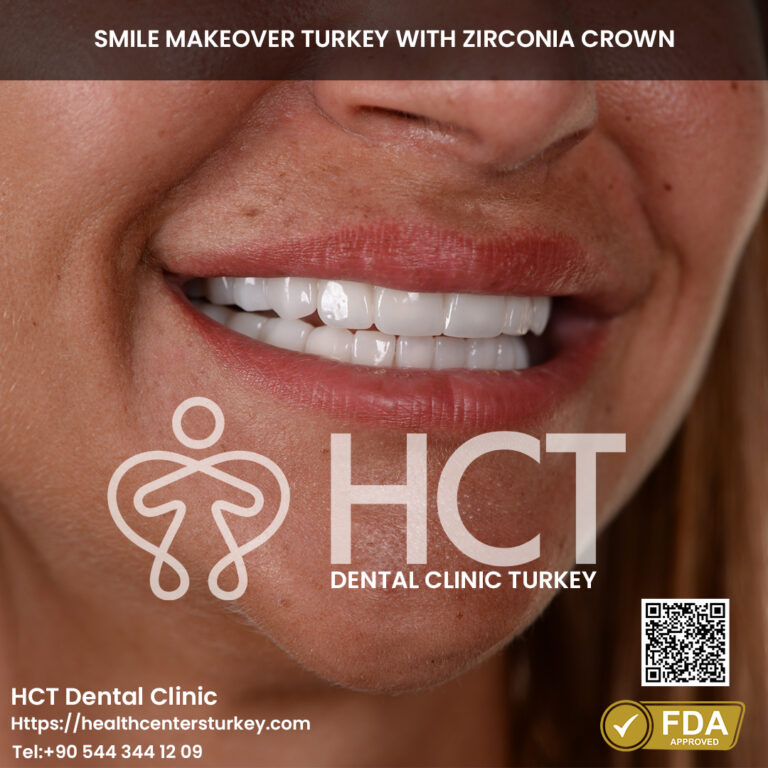Customized Oral Health Care Plans designed for Every Patient in Turkey
Customized Oral Health Care Plans designed for Every Patient in Turkey
Blog Article
Everything You Need to Know About Dental Treatment Abroad in Turkey
Dental implants have become a well-liked solution for these looking to replace missing teeth. Understanding how these implants can have an result on adjacent teeth is essential for anybody considering this procedure, in addition to for dentists and specialists involved in dental care.

One significant aspect is that dental implants are designed to be anchored into the jawbone, which implies they are independent of adjacent teeth. Unlike dental bridges, which regularly require the alteration of neighboring teeth, implants can fill the hole without compromising the health or structure of these surrounding teeth.
This independence helps preserve the integrity of adjacent teeth. When a tooth is lost, there is usually a natural tendency for neighboring teeth to tilt or shift into the empty area. Such motion can result in misalignment, which might affect bite and total oral health. By placing an implant, you successfully prevent this potential shift, selling higher alignment in the long term.
Finding the Best Dental Care in Turkey
Additionally, dental implants help keep bone density in the jaw. A natural tooth root offers stimulation to the surrounding bone, maintaining it wholesome and strong. When a tooth is missing, the bone can start to deteriorate because of lack of stimulation. With a dental implant mimicking a natural root, bone loss can be minimized, which not directly benefits adjacent teeth by preserving the overall structure of the dental arch.
While dental implants are advantageous, improper placement can influence neighboring teeth. If an implant is positioned too shut to another tooth, it might exert undue pressure on that tooth, leading to discomfort or potential harm. Proper planning and imaging techniques are essential for avoiding such points.
Complete Overview about Dental Tourism in Turkey
Moreover, sustaining good oral hygiene is crucial after receiving an implant. If not correctly cleaned, surrounding teeth may turn out to be susceptible to dental issues corresponding to decay or gum disease. This underscores the importance of diligent oral care following the process to make sure both implants and adjacent teeth stay healthy.
Regular dental check-ups are also important for monitoring the health of surrounding teeth. Dentists can identify any shifts or potential problems early, permitting for timely interventions. This proactive strategy ensures that each the implant and adjacent teeth can coexist without problems.
Prepare for Your Smile Makeover in Turkey
Another consideration is the impact of implants on chew drive. When a single tooth is missing, the load of chewing may shift to adjacent teeth, probably resulting in put on or strain. Implants restore correct chunk dynamics by redistributing forces in the mouth, which may defend surrounding teeth from undue stress.
Some sufferers may increase issues about the appearance of dental implants. Well-placed implants can mix seamlessly with current teeth, improving overall aesthetics. In contrast, failing to switch a missing tooth can result in aesthetic issues, together with collapsing of facial structure and adjustments in smile dynamics.
It's also value discussing the psychological visit site elements of dental health. Experiencing tooth loss can adversely have an result on one’s vanity and willingness to interact socially. By restoring your smile with implants, you'll find a way to positively influence not only your oral health but in addition your emotional well-being.
Long-term success of dental implants typically hinges on varied components, together with the affected person's health, maintenance habits, and the quality of the initial procedure. If adjacent teeth are healthy and properly cared for, the chances are they'll proceed to thrive alongside the implants.
Navigating Dental Clinics in Turkey
In conclusion, dental implants play a vital function in not just restoring particular person smiles, but in preserving the health and structure of adjacent teeth. By stopping shifting, sustaining bone density, and redistributing chunk forces, implants can make sure that surrounding teeth remain in optimum condition. Proper placement, hygiene, and regular dental visits can further enhance the advantages of dental implants, leading to a more healthy, more confident smile for years to come.
- Dental implants might help preserve the alignment of adjacent teeth by offering a steady anchor, stopping adjacent teeth from shifting into the hole left by a missing tooth.
- The presence of an implant might stimulate bone progress within the jaw, helping to protect the general structure and integrity of the adjacent teeth.
- Unlike traditional bridges, implants don't require alteration of surrounding teeth, thus preserving their strength and anatomy.
- Implants can enhance the distribution of chunk forces evenly throughout the dental arch, lowering the stress on neighboring teeth throughout chewing.
- A well-integrated dental implant can decrease the danger of bone loss within the area surrounding adjacent teeth, contributing to their long-term health and stability.
- The aesthetics of adjacent teeth could be improved due to the support provided by implants, which can result in better overall cosmetic outcomes.
- With correct placement, dental implants can prevent gum recession round adjacent teeth by maintaining sufficient dental structure.
- Implants might help mitigate the risks of periodontal disease in nearby teeth by selling healthy gum tissue and offering a cleanable floor.
- Long-term success of dental implants can result in improved oral hygiene routines, which in turn advantages the health of surrounding teeth.
- The improved useful ability of an implant can encourage sufferers to chew extra effectively, thus rising saliva production and aiding within the safety of adjacent dental tissues.undefinedHow do dental implants have an effect on adjacent teeth?
What are dental implants and how do they interact with adjacent teeth?undefinedDental implants are artificial tooth roots which may be surgically positioned into the jawbone. They provide a stable basis for replacement teeth whereas guaranteeing minimal disruption to adjacent teeth, preserving their integrity and alignment. Find Your Best Dental Clinic in Turkey for Aesthetic Procedures.
Holistic Dental Care Packages for Smile Transformation
Can dental implants trigger problems for nearby natural teeth?undefinedGenerally, dental implants don't harm adjacent natural teeth. However, if the implant just isn't placed appropriately go to this website or if there’s insufficient oral hygiene, it may lead to issues such as adjacent tooth decay or gum disease.

Will getting a dental implant change the means in which my adjacent teeth feel?undefinedMost sufferers report no change in the sensation of adjacent teeth after implant placement. However, it may take some time to adjust to the presence of the implant, similar to how one could adapt to other dental restorations.
Can dental implants help preserve the health of adjacent teeth?undefinedYes, dental implants may help maintain the health of adjacent teeth by stopping bone loss that may happen after tooth loss. This preservation supports the alignment of nearby teeth, lowering the chance of shifting or misalignment.
Qualified Dentists Offering Superior Care in Antalya, Turkey
Do I want to change adjacent teeth when getting an implant?undefinedTypically, adjacent teeth don't need alteration when putting an implant. This is among the advantages of dental implants over conventional bridges, which frequently require reshaping adjacent teeth for support.
How does the therapeutic strategy of an implant have an result on nearby teeth?undefinedThe healing course of includes osseointegration, where the implant fuses with the jawbone. During this time, adjacent teeth stay unaffected and retain their perform, though it’s essential to observe post-operative care recommendations. Extensive Dental Solutions for Your Perfect Smile.
Transform One's Teeth Appearance through Innovative Dental Solutions
Can dental implants lead to bone loss round adjacent teeth?undefinedIf dental implants are placed correctly and cared for adequately, they should not lead to bone loss round adjacent teeth. In truth, they might help stimulate bone growth, combating the natural bone loss that usually follows tooth extraction.
What precautions should I take to protect adjacent teeth after getting an implant?undefinedRoutine dental hygiene, together with brushing and flossing, along with common dental check-ups, is crucial. Avoiding onerous foods and following your dentist’s aftercare instructions may also protect each the implant and adjacent teeth.
Is it common for adjacent teeth to shift after an implant is placed?undefinedIt's not typical for adjacent teeth to shift after an implant placement, particularly when the implant is placed accurately and maintained properly. If there’s any motion, it may be as a outcome of other underlying points that ought to be evaluated by a dental skilled. Report this page